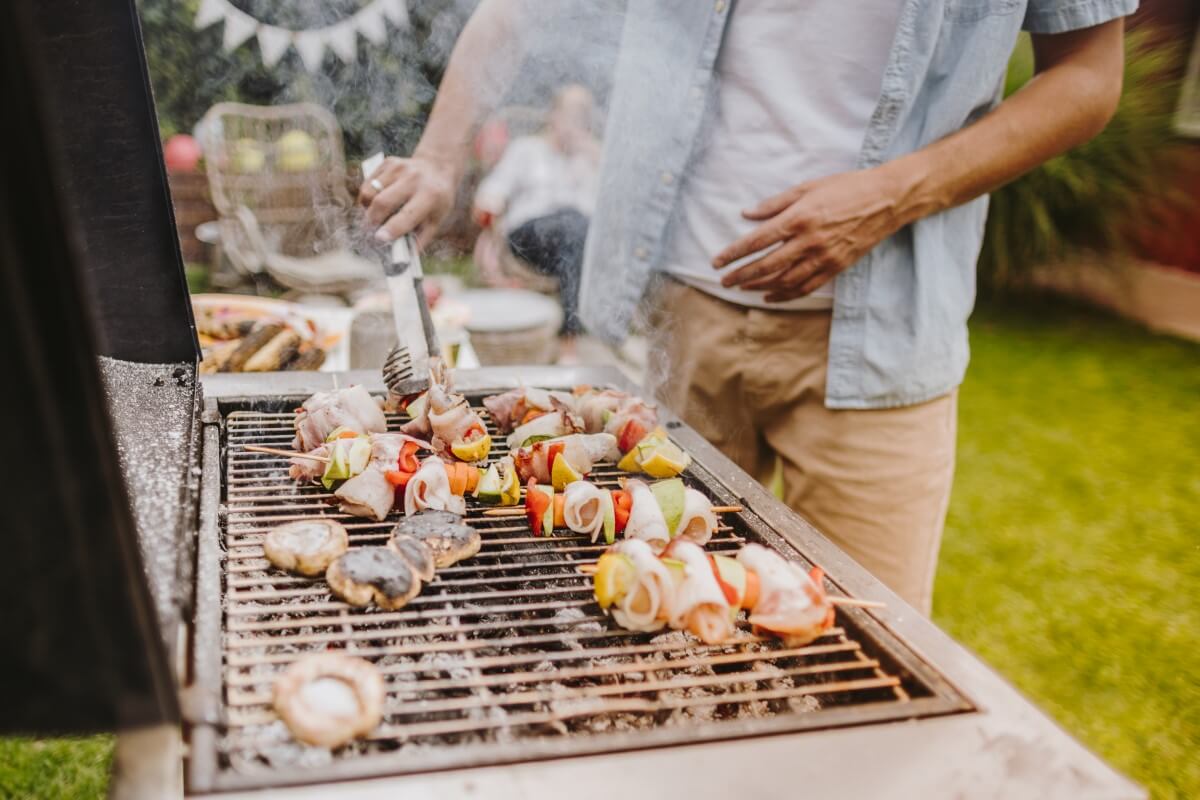Burn injuries are more survivable now than ever before thanks to continuous research and the specialized care available at hospital trauma centers. Despite this, they’re still all too common in ERs across the country. Anyone who works in a trauma center will tell you that the best treatment for burns is prevention. And the best way to prevent burns is to be extremely safe around heat and fire.
One of the most common causes of burn injuries is grilling, which hits prime time in the summer (July is National Grilling Month). According to the National Fire Protection Association (NFPA), gas grills are responsible for an average of 8,900 home fires each year, and close to half of all injuries involving grills are due to thermal burns. Between 2014 and 2018, roughly 9,500 people per year went to emergency rooms with grill-related burns.
We want to make sure you’re not one of them. So here are some tips from the NFPA to keep you safe around the grill this summer:
- Only use propane and charcoal grills outdoors.
- Place your grill well away from your home, deck railings and out from under eaves and overhanging branches.
- Keep children and pets away from the grill area.
- Keep your grill clean by removing grease or fat buildup from the grill grates and in trays below the grill.
- Never leave your grill unattended.
- If you’re using a charcoal grill, a charcoal chimney starter will allow you to start the charcoal using newspaper as a fuel.
- If you use a starter fluid, use only charcoal starter fluid. Never add charcoal fluid or any other flammable liquids to the fire.
- Keep charcoal fluid out of the reach of children and away from heat sources.
- You can also start a charcoal grill with an electric charcoal starter, which does not use fire. Be sure to use an extension cord for outdoor use.
- When you’re finished grilling with charcoal, be sure to let the coals completely cool before disposing of them in a metal container.
- If you’re using a propane gas grill, be sure to check the gas tank hose for leaks before using it for the first time each year. You can do that by applying a light soap-and-water solution to the hose and looking for bubbles.
- If your grill has a gas leak, by smell or the soapy bubble test, and there is no flame, turn off the gas tank and grill.
- If the leak stops, get the grill serviced by a professional before using it again. If the leak does not stop, call the fire department.
- If you smell gas while cooking, immediately get away from the grill and call the fire department. Do not move the grill.
Grilling is a great way to enjoy cooking your favorite foods outdoors, but it can be as dangerous as it is delicious. So grill with care out there.
In case of emergency, here is a full list of Mount Carmel Emergency Rooms.

